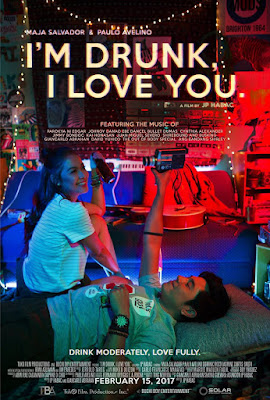FACING OUR DEMONS: A "HENERAL LUNA" REVIEW
HENERAL LUNA
Directed by: Jerrold Tarog
2015
There has never really been an extensive chronicle about Antonio Luna. Even during history class, teachers do not talk much about him — and it’s not entirely their fault. Majority of us only know one thing about Luna: that he is short-tempered, egotistic even. Yet in Jerrold Tarog’s latest feature, Heneral Luna, it is revealed that Luna played a major role towards Philippine independence, on a par with the greatness of Andres Bonifacio, or even Dr. Jose Rizal. In Heneral Luna, Tarog reveals that the ill-fated general shares a bigger connection with Bonifacio.
A disclaimer at the beginning of the film could not have been more fitting, since Tarog is well aware of Filipinos’ fixation on fact-checking everything. While the film is based on historical facts, some of the scenes were fictionalized for dramatic purposes, the warning read.
Heneral Luna should make for an interesting topic for lengthy discussions, for all the striking historical events depicted in the film. Such would not have been groundbreaking for us, if only we studied our history further, and deeper. However, Filipinos easily forget. It is one of our lingering flaws that has resulted in our perpetual social tragedy.
And perhaps, through this film, some history teachers would be more inclined to discuss history to their students beyond Rizal, Bonifacio, and Emilio Aguinaldo. I say some, because we have people like Ambeth Ocampo, who strive to present history through various interesting contexts. Or perhaps, it is the book writers’ fault. Could it be our indifference to the past, maybe? How many people today are rallying for the return of the Martial Law era? Funny enough, most of them were not even born when Martial Law took place.
Tarog has not only told a compelling historical epic worthy to be mentioned in the same sentence as Marilou Diaz-Abaya’s Jose Rizal, he has also made Luna enjoyable and relatable for today’s generation. John Arcilla seems like he was born to play Luna — as soon as he dons the military uniform, the rest is history.
Of course, the usual themes of patriotism, honor, and sacrifice are all there. Tarog, who also co-wrote the script goes further and makes a comment on our nation’s internal war — it is not Filipinos versus Americans, but Filipinos against Filipinos.
Luna died, but whoever killed him was never brought to justice. Americans credit the travesty to Aguinaldo, who said the Philippine President had ordered the assassination of his only true general. Though the film hints at Aguinaldo’s involvement in the matter, there never really is material evidence. Aguinaldo (Mon Confiado) appears in a scene near the end where he seems to be on trial, along with Felipe Buencamino (Nonie Buencamino). Perhaps, it is Tarog’s way of letting us decide the matter for ourselves.
Technically polished in every aspect, from sound design and cinematography to editing, Heneral Luna manages to be a spectacle without compromising its characters’ integrity.
Indeed, acting is one of the film’s greatest assets, from Lorenz Martinez’s firm grip on General Tomas Mascardo, one of Luna’s fiercest rivals, to the quiet composure of Epi Quizon as Apolinario Mabini, portrayed as the silent historical witness to an era of bloodshed.
Heneral Luna, as a platform for ideas, works because its creators are not afraid to take risks or liberties with history, or established beliefs. Tarog has shown no restraint in the amount of violence depicted in the film, and rightly so. It is high time that we get a history lesson with a bitter aftertaste, if only to rattle our comfort zones.


Comments
Post a Comment